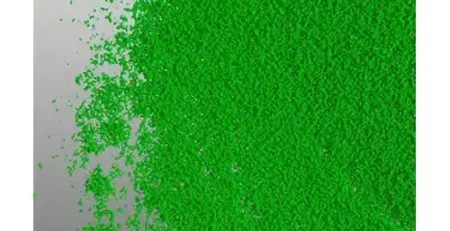Low Viscosity Pigments for Industrial Applications: Best Pigment for Dry Dispersion
**Introduction**
Hello, I’m Alex! Today, we’re focusing on low viscosity pigments, especially those ideal for dry dispersion, and their role in industrial applications. In industries where precise coloration and ease of processing are crucial, low viscosity pigments provide significant advantages. Let’s explore the key aspects of these pigments, drawing insights from Gajanan Organics, a leader in the field.
1. The Significance of Low Viscosity Pigments
Low viscosity pigments are essential for applications requiring easy processability and consistent color quality. They are particularly beneficial in coatings, inks, and plastics.
2. Advantages in Dry Dispersion
For dry dispersion, these pigments offer enhanced color strength, uniform distribution, and are easier to integrate into various industrial formulations.
3. Industrial Applications
These pigments are widely used in automotive coatings, industrial paints, printing inks, and plastic coloration, where precision and quality are paramount.
4. Overcoming Challenges in Pigment Dispersion
Low viscosity pigments help overcome common challenges in pigment dispersion, such as clumping and uneven color distribution.
5. Technological Advancements
Ongoing advancements in pigment technology have improved the performance of low viscosity pigments, making them more effective and versatile.
6. Customization for Specific Needs
Suppliers like Gajanan Organics offer customized pigment solutions to meet the specific requirements of different industrial applications.
7. Eco-Friendly Options
The development of eco-friendly low viscosity pigments aligns with the growing demand for sustainable industrial practices.
8. Quality and Compliance
Maintaining high quality and regulatory compliance is crucial for manufacturers and suppliers of these pigments, particularly in the stringent industrial sector.
9. Market Trends and Demand
Emerging trends in the industrial sector, such as the shift towards more sustainable and efficient materials, influence the demand for low viscosity pigments.
10. Gajanan Organics: A Trusted Supplier
Gajanan Organics is recognized for supplying high-quality low viscosity pigments, catering to the diverse needs of the industrial market.
**FAQs**
**Q1:** Why are low viscosity pigments important for industrial applications?
**A:** They facilitate easier processing, ensure consistent color quality, and improve the efficiency of manufacturing processes.
**Q2:** How do these pigments contribute to sustainable practices?
**A:** Low viscosity pigments often require less energy for dispersion and are increasingly being formulated to be more environmentally friendly.
**Q3:** Can these pigments be customized for different industries?
**A:** Yes, many suppliers offer pigments tailored to specific industrial needs, including color, performance, and environmental impact.
**Q4:** What future developments are expected in this sector?
**A:** Future developments may include further advancements in sustainability, performance under various industrial conditions, and new pigment formulations.
**Conclusion**
In summary, low viscosity pigments for industrial applications, particularly those suitable for dry dispersion, are crucial for achieving high-quality, efficient, and sustainable outcomes. With suppliers like Gajanan Organics at the helm, the future looks bright for innovations in pigment technology that meet the evolving demands of the industrial sector. Let’s look forward to the continued growth and development in this dynamic field!





